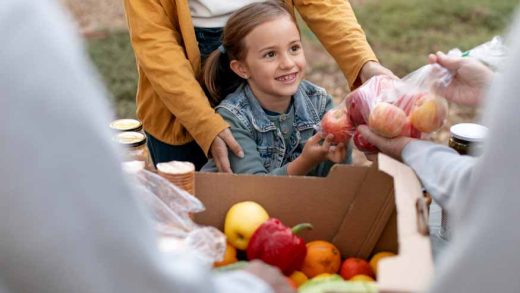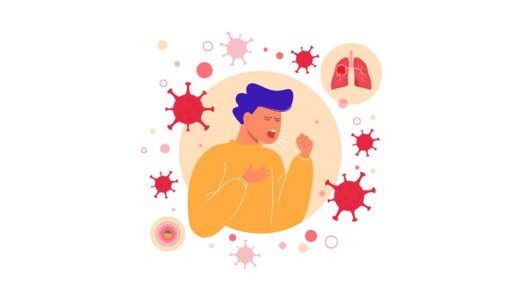During the summertime, it may get very hot. At this time, people are satisfied with even a bit of rain and cool wind. However, during vacation, you should be careful about health issues, especially when it comes to kids.
The monsoons don’t only bring about pleasant skies to enjoy or tea-drinking moments. They might also expose you and your children to different hazards from illnesses. A child is more prone to illnesses due to the developing immunity system, which is one of the most important things for their well-being.
This blog offers all-around monsoon health tips to protect your kids from illness during the rainy season. It also includes some tips on what to wear during wet weather. Stay aware to make the most of this enchanting season while maintaining rainy season precautions.
How Monsoon Becomes a Threat to Your Child?
While the monsoon season is enjoyable, there is still a rise in health threats, especially for children. Here’s how:
- Waterborne Diseases:
- Mosquito-borne Diseases:
- Fungal Infections:
- Respiratory Issues:
- Gastrointestinal Problems:
During the rainy season, a major part of the water sources are found to be contaminated. This goes a long way in increasing people’s susceptibility to waterborne diseases like diarrhoea, cholera, and typhoid. Children are at risk since they always have a low immunity level arising from their tender age.
Stagnant water is found in every nook and corner during the rainy season. It is an ideal breeding ground for mosquitoes which are carriers of deadly diseases like dengue and malaria. These diseases are common during this time and make children sick from their bites, hence the need for prevention.
Kids can have fungal infections, especially on the skin or feet because of humidity caused by rain seasons. But in case clothes as well as shoes stay wet for a long period, then chances will be increased further.
Respiratory problems like asthma, bronchitis, and common colds are some diseases of the raised levels of humidity. Sudden temperature changes can also contribute to these issues. Children who have some past issues with breathing may suffer more than others.
Eating unhygienic street food and drinking unpurified water in the monsoons can upset your kid’s stomach. Street food is very inviting during this time, but it can cause infections because it is prepared and stored in unhygienic conditions.
How to Keep Your Child Safe During Monsoon?
Ensuring the health and safety of a child during the rains comes from a mix of watchful practices and informed choices. Here is what you can do:
- Maintain Hygiene:
- Stay Dry and Comfortable:
- Healthy Diet:
- Safe Drinking Water:
- Mosquito Protection:
- Indoor Activities:
- Boost Immunity:
Ensure your child washes their hands with soap and water before meals and after playing outside. The little act can help prevent many infections. Show them the correct method so that their hands are properly cleaned every time they wash them.
Dressing properly for the weather is crucial. Look for monsoon wear for kids with waterproof jackets and clothes that dry quickly. Avoid keeping your child in wet clothes for extended periods. Use monsoon kids shoes like waterproof sandals or shoes with good ventilation to keep their feet dry. Change their clothes if they get wet to prevent skin irritation and infections.
A properly balanced diet can help boost the kid’s immune system. They should eat fresh fruits and vegetables and hot-cooked food, especially during the rainy season. Avoid eating street and junk food because it is one of the causes of stomach infection and dehydration. Some of the helpful foods during the monsoon season are soup, yoghurt, oats, and fruits.
Make sure your child has clean, filtered, or boiled water at all times. It’s important to protect your child from waterborne diseases this season. So, stop them from taking water or any other drink from external sources because it can contain dirt.
Use mosquito protection or creams recommended by doctors. Dress your child in long-sleeved clothing and full-length pants to prevent mosquito bites. Make sure to protect their sleeping area from mosquitoes. Keep checking for puddles and stagnant water near your house to stop mosquito breeding.
Keep kids inside the houses to prevent infections. You can keep them busy by playing indoor games and activities. This will keep them safe and also you will get to spend quality time together.
Exercising, resting, and having a balanced diet are important for improving your child’s immune system. Some best foods that help boost their defences are oranges, nuts or yoghurt.
A Few More Tips to Consider
- Ensure children avoid puddles to prevent fungal infections.
- Dry wet hair immediately to prevent colds.
- Use antiseptic wipes for quick hand cleaning.
- Keep nails trimmed to minimise dirt accumulation.
- Opt for natural mosquito repellents for sensitive skin.
- Avoid overcrowded places to reduce infection risk.
- Regularly disinfect toys and play areas.
By following these monsoon health tips and rainy season precautions, you can significantly reduce the health risks associated with the rainy season and keep your child healthy and happy.
Monsoon is that time of the year when families love the refreshing showers and a respite from the sun, though it also poses challenges in terms of health, especially for children. You can help protect the health of your child by being aware of the possible threats that are common in this season. Some of the important ways include maintaining proper hygiene by making them put on monsoon wear for kids, consuming safe drinking water, and eating good food. Using monsoon kids shoes, ensuring dry feet, and organising some indoor activities, will further help protect them from common monsoon ailments. Following these rainy season precautions, you and your child can have a hearty enjoyment in the monsoon months without fear of any hassles.
At Kangaroo Kids International Preschool, we prioritise your child’s health and safety. Enrol now to ensure a holistic and nurturing environment where learning and care go hand in hand. Visit our website or contact us for more details.









